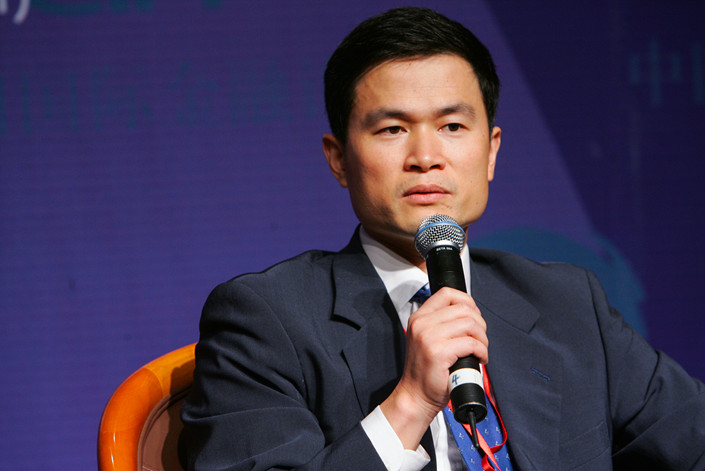China Should Drop IPO Price Cap to Aid Stocks, Regulatory Official Says

China should remove the price cap on stocks during their first day of trading and drop restrictions on stock-index futures in order to resuscitate the country’s ailing equities market, a top securities regulatory official said.
The speech by Fang Xinghai, vice chairman of the China Securities Regulatory Commission (CSRC), bolsters expectations that the government will take additional measures to bolster a stock market plagued by thin trading and downtrodden sentiment.
Fang said at a forum in Beijing on Saturday that the stock market’s main issue at present is there just isn’t enough trading. It’s a problem that regulators ought to remedy.
Authorities should “remove” the cap on how high the price of a stock can rise on its first day of trading because such restrictions can lead to “illusionary and unreasonable” prices on very thin trading volumes, Fang said. Under current regulations, a newly listed stock can rise no higher than 44% from its initial public offering (IPO) price on its first day of trading.
In addition, he said that authorities should also relax the current daily trading limit on stock-index futures. Futures contracts with a stock index as the underlying asset are a key tool for investors to hedge against, or speculate on, broad price movements in the market. However, the tool has been subject to many restrictions since the mid-2015 stock market meltdown, which have wiped out much of the trading that once made it one of the most active markets in the world.
Fang did not offer many details on how these two measures ought to be implemented.
The government has already tried to improve the sentiment of the country’s equity market, which lost 24.6%, or $2 trillion, in market capitalization in 2018. Sentiment boosters include attracting more foreign money through the stock trading links between the Chinese mainland and Hong Kong, as well as drafting rules to launch a new trading channel that could lure listings of high-tech companies onto its main board.
On top of that, Fang said the CSRC is working with the Shanghai Stock Exchange to implement a high-technology stock board “as soon as possible.”
He also predicted that there would be a roughly 600 billion yuan ($88.8 billion) increase in foreign money invested into mainland stocks in 2019. That would be double this year’s increase.
“After a while, I believe capital market reform will be one of the leading forces behind the country’s financial market reform for some time,” Fang said.
Contact reporter Leng Cheng (chengleng@caixin.com)

- 1Cover Story: China Carves Out a Narrow Path for Offshore Asset Tokenization
- 2Drownings Shake Chinese Enthusiasm for Travel to Russia
- 3China Business Uncovered Podcast: A $15 Billion Bitcoin Seizure and the Fall of a Cybercrime Kingpin
- 4Over Half of China’s Provinces Cut Revenue Targets
- 5Li Ka-Shing’s Port Empire Hit by Forced Takeover Amid Panama Legal Dispute
- 1Power To The People: Pintec Serves A Booming Consumer Class
- 2Largest hotel group in Europe accepts UnionPay
- 3UnionPay mobile QuickPass debuts in Hong Kong
- 4UnionPay International launches premium catering privilege U Dining Collection
- 5UnionPay International’s U Plan has covered over 1600 stores overseas





